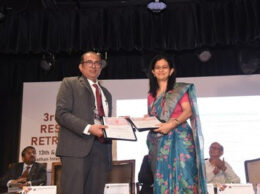New Delhi: Performance in impacting quality of education will be criteria for granting autonomy to Universities. The institutions with good ranking will have 100% autonomy, average institutes will have 50% autonomy and bad performers would have only 10% autonomy in their working. Mr Prakash Javadekar, Union Minister for HRD, Government of India, has announced that universities will be granted an autonomous status based on the National Institutional Ranking Framework and National Assessment and Accreditation Council (NAAC).
Delivering the keynote address at the 12th edition of FICCI’s Higher Education Summit on the theme, ‘Education for Tomorrow: Learn in India-Learn for the World’, Mr. Javadekar said that for sustainable progress of a country it was essential to have really good research-driven and innovation-oriented universities. In view of this, the government was in the process of establishing 20 world-class universities, of which 10 will be in the public sector and 10 in the private sector with full autonomy.
He added that the government will play the role of a facilitator and help in improving the quality of education. Speaking on the National Education Policy, the Minister said that there have many misconceptions and the government was revisiting the policy to develop a relevant framework to bring about autonomy in the sector.
The minister informed that recently a meeting was held with 40 MPs of varied states to encourage research and innovation in the universities as that will add value to the system. Mr. Javadekar said that the government was thinking of reintroducing Class X board examination for CBSE schools. But he assured that any such decision will only be applied from the next academic year and would come into force in 2017-18.
To incentivize innovation, Mr Javadekar said that India Hackathon has been launched where students of all technology institutions in India are being challenged to offer innovative solutions to some of the daunting problems faced by our nation. He added that though India possesses best of brains in the world but due to lack of infrastructure, labs, scholarships, quality education and enabling policy framework, the students prefer to carry out research and innovations abroad. Hence, the government is determined to create a conducive research environment in the country.
Elaborating on the various programmes initiated by the government to enhance the quality of higher education and development of infrastructure for the sector, Mr. Javadekar said that Uchhatar Avishkar Yojana (UAY), IMPacting Research INnovation and Technology (IMPRINT), Higher Education Financing Agency (HEFA) and Global Initiative of Academic Networks (GIAN) and soon to be implemented Global Research Interaction Network (GRIN) are some of the schemes which will give a boost to the sector.
The Minister expressed concern that Indian universities do not fare well at the international rankings. He alluded to the fact that the perception of Indian institutes is not as expected in the global arena. The government was in the process of addressing the perception issues as well, he added.









